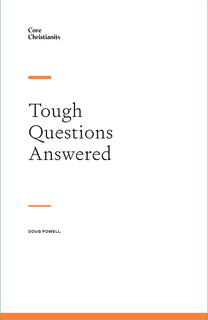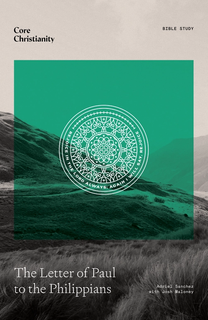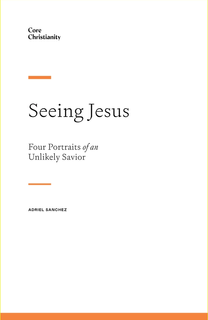If God is good, then why doesn’t he condemn the slavery depicted in the Bible? Hasn’t the Bible been used to defend slavery? Whether we have heard these questions from those skeptical of the Bible or have asked them ourselves as we read the Scriptures, in light of the horrors of racialized and chattel slavery, Christians can’t ignore these criticisms.
Differences between Chattel Slavery and the Slavery Depicted in the Bible
Since we live in the 21st Century, when we think of slavery, we often think of the 400 years of racialized slavery, most prominent in the Transatlantic slave trade in the United States and Europe. Therefore, when we read the Old and New Testament’s references to slavery, we have a tendency to conjure up depictions of the slavery we learned about in our U.S. History class, rather than seek to understand the slavery that’s mentioned in the Bible. There are at least three unique differences worth noting:
- Chattel slavery was primarily justified because of one’s race. In other words, slave owners felt justified to treat Africans as pieces of property because of the erroneous notion that Africans were lesser humans because of their skin color. In contrast with this, the ancient and Greco-Roman slavery depicted in the Bible was occupied by people of all different races, ethnicities, and economic classes.
- Chattel slavery was understood to be a form of life-long bondage. There was little to no chance of a slave ever earning his freedom. However, the slavery depicted in the Bible was almost always temporary. In the Old Testament, clear requirements are given to Israel that outline the release of different kinds of slaves after different periods of time (Exod. 21:3; Lev. 25:8–17).
- Chattel slavery was conducted solely through kidnapping. In contrast, the Scriptures explicitly condemn any and all forms of kidnapping and manstealing: “Whoever steals a man and sells him, and anyone found in possession of him, shall be put to death” (Exod. 21:16); in 1 Timothy 1:10, the Apostle Paul says that those who kidnap a man in order to sell him into slavery are “lawless and disobedient,” “ungodly and sinners.”
It’s clear from the biblical evidence that any and all examples of the kind of slavery faced by Africans at the hands of Americans and Europeans from the 17th-19th centuries is condemned by the Bible. In no way does the Bible justify racialized and chattel slavery. In fact, the opposite is true: every Christian who excused the kidnapping of Africans and found no problem selling them into life-long slavery is guilty of manipulating and twisting the Bible to fit their own corrupt ends.
Why doesn’t the Bible condemn slavery outright?
Even though the slavery described in the Bible was clearly different than chattel slavery in many important ways, we may still ask, “why didn’t God just condemn slavery as a whole from the get-go?”
To answer this question we must first consider the purpose of the Bible. Put simply, the Bible is not primarily a tool that we can use to establish the best institutions and political systems. It’s a grand narrative and story that proclaims the Good News of Jesus Christ. The Bible’s purpose is to foretell and explain the redemptive work of Jesus, the Lamb of God who “takes away the sins of the world” (John 1:29). This doesn’t mean that it’s irrelevant for founding just societies. However, God does not spoon-feed humans with tips and tricks on how to manage their ordinary lives. Slavery already existed in the ancient world by the time the Bible was being written. For ancient people, slavery was one of the only options to take care of refugees, widows, and those who were in debt.
Instead of overriding the ancient systems of slavery, God accommodates its use in the Bible, but he only does so on specific grounds. We have already seen that the Lord condemns kidnapping and forcibly selling individuals into slavery. But for those who chose to enter slavery willingly or who had no other place to work in society, God demands they be treated with dignity.
While other nations forced their slaves to labor without rest, slaves and servants in the Israelite community are guaranteed the rest of the Sabbath (Exod. 20:10). The Mosaic law provides protections for the most vulnerable people who become slaves (Exod. 21:8–11). And the Lord consistently reminds his people that they were once slaves in Egypt as a means to cultivate compassion for those in slavery (Deut. 5:15; 15:15; 16:12; 24:18, 22).
Does the Bible condone slavery as long as the master takes care of the slave?
In the book of Philemon, we begin to see the seeds of ideas that would go on to dismantle slavery entirely.
Paul writes to Philemon, a respected individual in the early Christian church whose slave, Onesimus, runs away. Paul begins his letter to Philemon, saying, “I have derived much joy and comfort from your love, my brother, because the hearts of the saints have been refreshed through you” (Philem. 1:7). We see here that Philemon was a kind man who likely treated his slave, Onesimus, well. Therefore, if Paul thinks slavery is just fine as long as the master treats his slaves well, we expect Paul to encourage Onesimus to return and work for Philemon. But that’s not what Paul says.
Paul tells Philemon to receive Onesimus back, “no longer as a bondservant but more than a bondservant, as a beloved brother. … Receive him as you would receive me” (vv. 16–17).
If Paul thought slavery was of no consequence, why would he say this? The answer is that, even though the Bible accommodates and allows for certain forms of ancient slavery, it continually undermines the institution by demanding servants not be treated as property, but as those with inherent dignity, made in the image of God (Gen. 1:26–27). Paul requests Philemon to receive Onesimus back, not as a slave, but as an equal brother in Christ. This notion that everyone—even slaves—are worthy of dignity is utterly countercultural in a world which so often aims to take advantage of those who don’t have the means to stand up against oppressive systems like slavery.
In the Bible, we have a God who hears the cry of the oppressed and answers them with the promise of righteousness and justice: “But let justice roll down like waters, and righteousness like an ever-flowing stream” (Amos 5:24). These promises are the ones that were taken to heart by many abolitionists and others, like Dr. Martin Luther King Jr., who sought to correct the injustices caused by racism and slavery in our world.
May we apply the truths of the Scriptures similarly, as we seek to “do justice, and to love kindness, and to walk humbly with [our] God” (Micah 6:8).
What Does the Bible Say?
- Slavery in Scripture: Exod. 21:8–11, 16; Lev. 25:8–17; Deut. 5:15, 15:15, 16:12, 24:18–22; Rom. 6:15–23; 1 Tim. 1:10
- The value of human life: Gen. 1:26–27; Ps. 139:13–16; Matt. 6:26; John 3:16; 1 Pet. 1:18–19
- Justice and God’s people in Scripture: Ps. 106:3; Isa. 1:17; Amos 5:24; Micah 6:8
Recommended Resources
- No Flesh Shall Glory by C. Herbert Oliver
- Free at Last by Carl Ellis
- Black and Tired: Essays on Race, Politics, Culture, and International Development by Anthony Bradley










